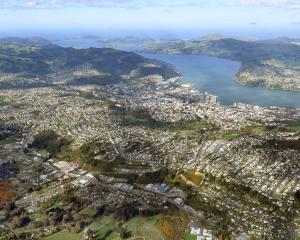
But it also insists the extra budget headroom created by the move will not result in the council, or ratepayers, taking on extra debt beyond what it has already committed to.
The proposal is outlined in a staff report to be considered by councillors at today’s full council meeting.
The report, by DCC finance and commercial general manager David Tombs, recommended the change to allow the council and its companies to borrow money needed for their capital spending plans.
That included Aurora’s major network upgrade, work on which was continuing.
Mr Tombs, in his report, said existing arrangements allowed DCC group debt - spread across the council and its companies - of up to $850 million.
Already, group debt was forecast to exceed $850 million by late next year, as it increased from $691 million in June this year to $927 million by 2022.
The increasing debt levels were being driven largely by the capital spending plans of the council and Aurora.
That meant the council either needed to find ways to reduce debt or ways of increasing the amount that could be borrowed, to deliver on spending plans already developed.
Mr Tombs recommended an increase in uncalled share capital in the companies’ parent body, Dunedin City Holdings Ltd, as the best way for increasing the group’s borrowing capacity.
The uncalled shares provided security for DCC group debt, and had previously been increased from $600 million to $850 million in 2010-11.
Mr Tombs said another change in uncalled share capital would not incur any "significant" cost, but would "simply enable the future debt to be available" and provide some "liquidity headroom".
That headroom could be useful if needed, for example if a natural disaster struck the city, he said.
The council could consider joining the New Zealand Local Government Funding Agency, and borrowing from it, selling some of its $93.5 million investment property asset portfolio or cashing in part of its $92.7 million Waipori Fund.
However, Mr Tombs ruled out those suggestions, saying selling all the council’s investment properties could keep group debt below $850 million but would leave little headroom.
It was also unlikely all the properties could become "sale ready" within required timeframes, he said.
The Waipori Fund also generated $8.6 million in investment returns in 2018-19, a return of more than 9%, and using the fund to offset borrowing would have "adverse commercial ramifications" given the return it was generating, he said.
He recommended the change to DCHL uncalled share capital, while noting group debt could still not increase beyond $927 million without "explicit" approval from the council.
Comments
No!. One cannot ever increase debt. Hold our debt levels or reduce. Enough is enough.
Borrowing our way to prosperity......I would love to know what the market value of DCC's assets are? not in their financial statements- maybe the DCC is broke and needs liquidity to stay afloat?
Any potential lender would have to look at the council's past performance when dealing with debt repayment and how it was achieved. The continued above inflation rises in rates added to the starving of council owned entities of capital for reinvestment would indicate to any responsible lender that the council is in no position to take on any more debt.
And yet the Standard and Poors rating agency has always, and continues to state that council has a very safe rating when it comes to borrowing. AA++ or very similar from memory (I stand to be corrected on the exact rating). Any lenders will fall over themselves to lend money to DCC.
I too would have a great S&P rating if I could charge captive clients anything I wanted












